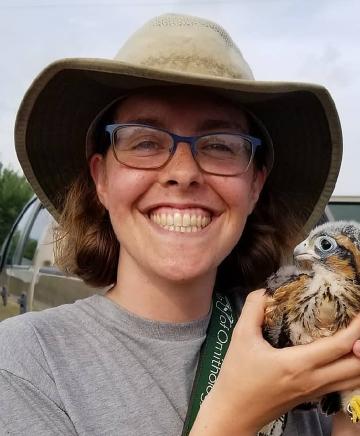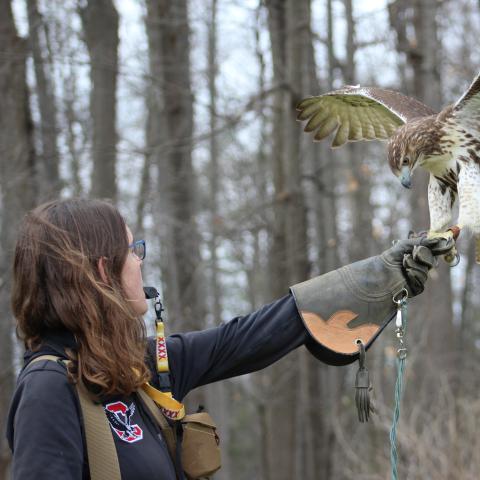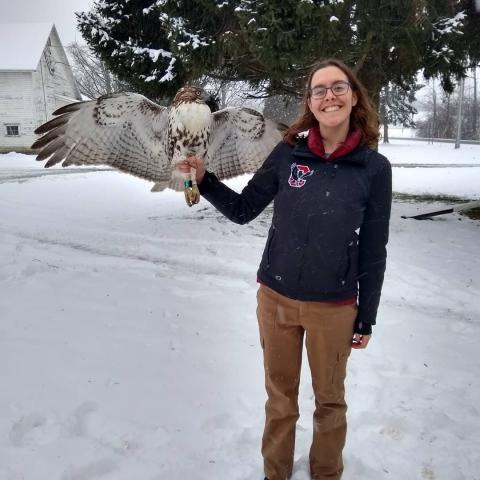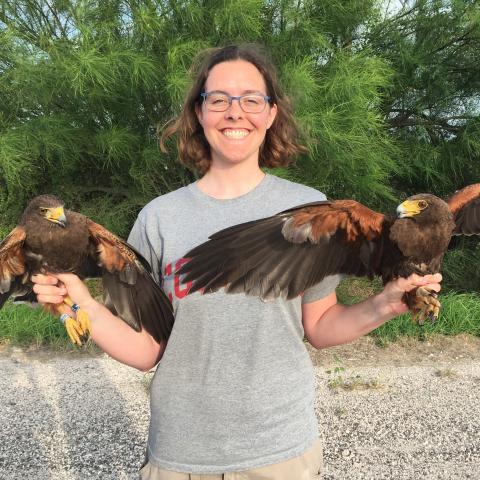High School
Phillips Academy, Andover, MA, 2016Undergraduate Education
B.S. in Biological Sciences from Cornell University, 2020Profile
In humanity’s quest to better understand our own species, it’s no secret that primates have been a source of much insight into human behavior and cognition. But can avian species also teach us something about ourselves? Ornithologist and Thoreau Scholar alumna Samantha Hagler certainly believes so.
“Research shows that birds live rich, behaviorally complex and interesting lives and we’re only beginning to learn about their cognition and social behaviors. I’m drawn to the challenge of figuring out what birds are thinking…how they solve problems…how their social behaviors evolved. Humans are very social animals too. As we understand more about bird social behavior, I’m fascinated with the question of what those behaviors can tell us about ourselves.”
Sam was introduced to birding at a young age when she joined a young birders group at Drumlin Farm Wildlife Sanctuary in Lincoln, MA. “On weekends we would go out for the whole day. Older mentors taught us the ropes, how to ID birds and bird behavior, helping us understand unique habitats.”
As her interest in birds deepened, Sam set her sights on Cornell University’s Lab of Ornithology, one of the world’s leading bird research and conservation institutes, supported by over 75,000 members. “The Lab was the main reason I applied to Cornell early decision,” recalls Sam. “There are many universities with great bird research labs, but Cornell’s support for undergraduate ornithology research is unparalleled.” Through Cornell, she gained a wealth of hands-on experience both in the lab and the field, including trips to Kenya, the Dominican Republic, and Australia.
It was the latter trip that, as Sam puts it, “snapped my research interest into focus.” Traveling to Queensland, she implemented an independent, NSF-funded field study on Red-backed Fairywren behavior. This particular species is extremely social, often living in cooperative groups, to the extent that fledglings from the prior year will frequently come back to help their parents raise the next generation of chicks. Sam’s experience led to more opportunities to participate in cutting-edge research on avian social behavior. “I became fascinated with the Harris’s hawk, one of the few highly social raptor species, and reached out to a biologist from the University of North Texas who studies them.” This species often lives in family groups (particularly in the northern edge of their range) and hunts cooperatively, with each bird playing a different role in the hunting party. Hawks that work together are more successful than those who go it alone. Not unlike humans, a parallel that is not lost on Sam.
With plans to engage in more field research scuttled by the COVID-19 pandemic, Sam has found meaningful work at the Cornell Raptor Program and is polishing off a few manuscripts for publication. It has also opened up more time to engage in one of her passions, falconry. “What draws me to this sport is being able to develop a relationship of trust with a wild animal to the point where we are able to work together,” she explains.
With an existential threat to wildlife top of mind—we have lost nearly 3 billion birds in the past half-century in North America alone—Sam recognizes that the news is not good. “Birds get a lot of attention, but many other less charismatic animals like insects are experiencing even more devastation. It can be a discouraging time to be an ecologist. At the same time, I do see positive stories all the time. And it helps to have the support of the Thoreau Foundation. The undergraduate scholarship on its own has been incredibly helpful, but it’s the people who are the biggest support. Especially as a recent graduate, it’s encouraging to know you have so many people in your corner.”



